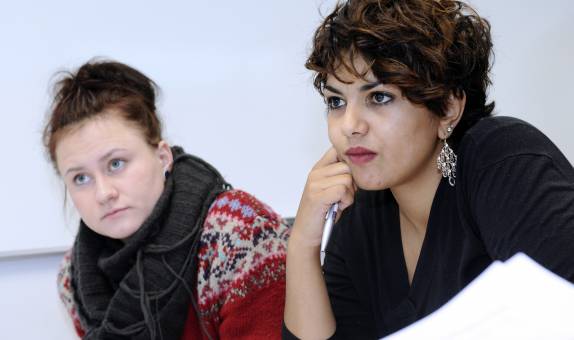Description: The GEP should be a formal document signed by the top management and disseminated within the institution. It should demonstrate a commitment to gender equality, set clear goals and detailed actions and measures to achieve them.
Evidence: Our Athena SWAN Bronze Institutional (2017-2022) submission can be found on our public-facing Athena SWAN page. This has been endorsed by the Vice-Chancellor, Board and wider Senior Leadership Team. We are currently renewing our Athena SWAN in Autumn 2022. This page also evidences our faculty submissions.
Description: Resources for the design, implementation and monitoring of GEPs may include funding for specific positions such as equality officers or gender equality teams as well as earmarked working time for academic, management and administrative staff.
Evidence:
- Athena SWAN Self-Assessment Team (SAT) – Both co-chairs have 0.2FTE to work on the Athena SWAN submission and implementation. The SAT will meet monthly during a submission and then evolve into an implementation group following submission in Autumn 2022.
- Equality, Diversity & Inclusion (EDI) Committee – Following a review of our EDI Governance structures, the EDI Committee will meet at least quarterly and has, within its terms of reference, explicit responsibility or the monitoring of our equality and diversity commitments
- EDI Partners – two full time staff responsible for supporting the monitoring and implementation of our EDI commitments
- Senior Leadership Team (SLT) Sponsor – There is a SLT Sponsor: Gender Equality who will also have oversight as to the implementation and accountability of our gender-related commitment. Currently this is Chief Financial Officer, Caroline Harries.
Description: GEPs must be evidence-based and founded on sex or gender-disaggregated baseline data collected across all staff categories. This data should inform the GEP's objectives and targets, indicators, and ongoing evaluation of progress.
Evidence: Sex and gender-disaggregated data is available, with response rates from staff and students at/near 100% due to these being compulsory fields. The data is available to all staff via our Data Insights dashboards and are used in all diversity and inclusion decision making. Our Charter Mark submissions and key projects can also request additional data beyond the dashboard which will give a more detailed and intersectional view to inform decisions and impact monitoring.
Description: Actions may include developing gender competence and tackling unconscious gender bias among staff, leaders and decision-makers, establishing working groups dedicated to specific topics, and raising awareness through workshops and communication activities.
Evidence: The University has an established and evolving learning and development offer to staff, coupled with an ever-improving communications/campaigns programme.
Examples are:
Training/Learning
- Unconscious Bias module (mandatory)
- Equality Essentials module (mandatory)
- Managing Diverse Teams (recommended)
- EDI Learning & Development Hub – a staff-facing page with learning resources across our EDI streams, including Gender Equality.
Communication
Recruitment
- Comprehensive review of our recruitment policies and practices – to be completed in 2022
- Section 5.6 of our Athena SWAN submissions analyse training and development
Research
- The Research Excellence Framework (REF) is a national exercise in assessing the impact research. This last exercise was undertaken in 2021 with the outcomes due in 2022. The data of submitted participants is analysed by equality protected groups, including sex and ethnicity. The findings will be used to develop institutional responses and deliver the commitment for an inclusive researcher community
- LTEC is a dedicated department working to upskill our educators and researchers including our inclusive curriculum and research design
Violence and harassment






